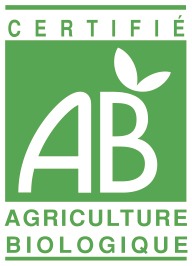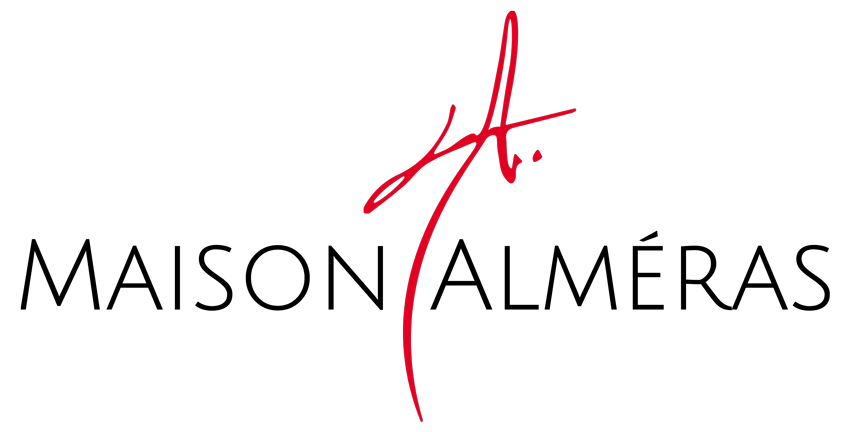Discover
our history
In Provence, at the foot of Mont Ventoux, the authentic vineyards of the Maison Alméras are visible.
The winegrowers work with respect for nature and allow the terroir to give its best. Thus were born the wines of the House of Alméras. . .
ORIGIN
Over 10,000 years ago…
The village now known as Puyméras is set amongst the meanders of the Ouvèze and Lauzon rivers in a land inhabited since the end of the Upper Palaeolithic, over 10,000 years before our era. It is situated on the border between the Vaucluse and the Drôme, giving it two terroirs, two cultures, and a long history.
The Latin roots of Puyméras set the tone from 1288. Known by the name ‘Castrum de Podio Almeracii’, this fortified hilltop village (the meaning of the Latin words ‘Castrum’ and ‘Podium’), was linked to the powerful ‘Almeracii’ family, which really left its mark on the land.
Then, for several centuries, it was part of a region of Provence known, in papal times, as Comtat Venaissin, which gave the land its specific historical legacy and contributed to its agricultural development.
The Alméras Winery is perched at an altitude of 400m and the vines growing amongst the hills and valleys reflect the unique identity of the village.
TERROIRS AND APPELLATIONS
The terroir of the Alméras Winery is the key to the identity of our Côtes-du-Rhône Villages Puyméras, Côtes-du-Rhône and Ventoux wines. The natural conditions have a major role in the quality of this terroir. The Mediterranean climate bathes the vines in generous sunlight, with temperatures that do not fall too low, moderate rainfall, and the beneficial Mistral wind.
The vineyards of Puyméras are set on the right bank of the River Rhone, close to Vaison-la-Romaine and facing Mont-Ventoux, which is known as the Giant of Provence.
Puyméras, which gained the status of Côtes-du-Rhône Villages Puyméras in 2005, is an appellation dominated by hill slopes and stony terraces of rounded pebbles and angular limestone slabs, covered by fine, red, sandy and stony soil. The varietal that reigns here is Grenache, which flourishes amongst the lavender, olive trees, and garrigue scrubland. Its red wines, with their aromas of fruit, thyme and rosemary, promise a real journey for the senses.
In the fields & in the cellar
At our Winery, every day’s work aims to bring out the full potential of the grapes, gently and naturally, so that our wines reveal the unique characteristics of their terroir. We are extremely attentive to each key step of winegrowing and winemaking.
We constantly check the state of the soil and the vines and tend them according to traditional methods. We select plots and varietals with utmost care, harvest the grapes at optimal maturity, and limit the use of sulphur. The winemaking process is also managed with precision and without adding anything that is not absolutely necessary.
Our team shares the values generally associated with those who work the land, namely humility, constancy and respect. We work in harmony with nature and strive to limit our impact on the environment and society.
A FEW WORDS FROM OUR PRESIDENT:
Our greatest wish is to help people to discover and get to know our appellations, especially our Côtes-du-Rhône Villages Puyméras. We are convinced that our wines, produced with respect for nature and certified organic (AB), Vegan and with no added sulphur, are in line with current expectations and will appeal to consumers.
Focus on our agriculture
 Organic agriculture is a production method that combines the best environmental practices, respect for biodiversity, preservation of natural resources and animal welfare.
Organic agriculture is a production method that combines the best environmental practices, respect for biodiversity, preservation of natural resources and animal welfare.
Following this mode of production means that we comply with strict specifications that favour non-polluting processes, exclude the use of GMOs and limit the use of inputs. We favour the use of natural and renewable resources in locally organized agricultural systems, with strict restrictions on the use of synthetic chemicals.
 Being a vegan is a way of life that consists of eating 100% vegetable ingredients.
Being a vegan is a way of life that consists of eating 100% vegetable ingredients.
Vegan wine is a wine that is produced without the use of elements of animal origin (egg white during vinification for instance). Maison Alméras is committed to this approach and uses products made from vegetable pea proteins in the production of its wines.

